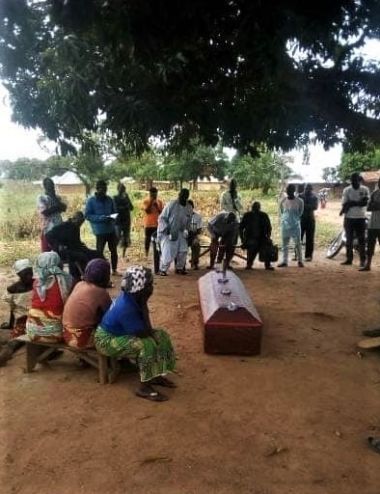Hundreds of Christians killed in Nigeria this year - report

About 620 Christians have been killed and hundreds of homes and churches damaged in Nigeria since the start of the year as attacks carried about by Fulani radicals and Islamic terrorists continue, a Nigerian NGO has warned.
The Anambra-based International Society for Civil Liberties & Rule of Law, headed by Christian Emeka Umeagbalasi, released a statement Thursday highlighting the impact of the atrocities committed by terrorists across Nigeria so far in 2020.
The report warns that militant Fulani herdsmen in the rural Middle Belt states and terrorists affiliated with Boko Haram and the Islamic State West Africa Province in the northeast have "intensified their anti-Christian violence."
The group reports the killing of "no fewer than 620 defenseless Christians and wanton burning or destruction of their centers of worship and learning" in 2020.
According to the NGO, Fulani radicals are responsible for killing over 470 people in the first four-and-a-half months of 2020, with 140 Christians killed between the start of April and May 14.
Meanwhile, Boko Haram is believed to have killed 150 Christians since January.
"The atrocities against Christians have gone unchecked and risen to alarming apogee with the country's security forces and concerned political actors looking the other way or colluding with the Jihadists," the organization argues.
"Houses burnt or destroyed during the period are in their hundreds; likewise dozens of Christian worship and learning centers."
The organization reported in a March statement that at least 350 Christians were killed in January and February, with Fulani radical attacks in the Middle Belt of Nigeria accounting for 250 of the deaths and Boko Haram terrorists accounting for between 50 and 100 killings.
Additionally, the group reported at the time that between 11,500 and 12,000 Christians have been killed in Nigeria since June 2015. According to Intersociety, radical herdsmen accounted for the killing of over 7,400 Christians and Boko Haram groups accounted for 4,000 killings.
While conflicts between Fulani herdsmen and predominantly Christian farming communities in the Middle Belt states have existed for decades, advocates warn that Fulani attacks in recent years have increased in quantity and severity.
Fulani radicals are often armed during their night-time attacks on farming villages. As a result, many farming communities have been pushed off their lands.
Intersociety projects that by the end of 2020, the number of Christian deaths since 2009 may reach 32,000.
"The killings covered 2009 to 2020, with projected figures for Boko Haram and its offshoot ISWAP and Jihadist Fulani Herdsmen in the coming seven months and half of 2020," the report explains.
The United Nations Office for Coordination of Humanitarian Affairs estimated last year that at least 27,000 people have been killed by the Boko Haram conflict in northeast Nigeria since 2009.
During the years that Boko Haram rose to prominence in the northeast, Intersociety notes that there were 6,000 Christians killed by radical herdsmen between January 2009 to December 2014 in the Middle Belt states.
"This is an average of 1,000 Christian deaths per year," Intersociety reports. "[T]he Jihadist Fulani militants must have accounted for additional 9,000 Christian deaths, or 1,500 deaths per year [from January 2015 to end of December 2020]."
"In the end, the Jihadist Fulani Herdsmen must have accounted for total Christian deaths of 15,000 in 11 years," Intersociety estimates.
The organization also contends that most of those killed by Boko Haram from January 2015 to December 2019 — about 60% — were Christians, and that all those killed by Fulani radicals in the same period were Christians.
This past week, suspected Fulani radicals conducted a series of attacks in the Kaduna state district of Kajuru, killing over 20 people and injuring several others.
"[S]ince the COVID-19 lockdown on March 25, these Fulani herdsmen have killed 38 Southern Kaduna people, as of yesterday," Kajuru resident Alheri Magaji, who leads the nonprofit Resilient Aid and Dialogue Initiative, told The Christian Post. "That's more than the coronavirus."
In addition to the killings, millions in Nigeria have been displaced from their homes and farms due to the violence in the northeast and Middle Belt. While some have returned, many are still homeless with no timetable for when they may be able to return to their farms and homes.
Nigeria ranks as the 12th worst country in the world for Christian persecution on Open Doors USA's 2020 World Watch List.
For the first time last December, Nigeria was added to the U.S. State Department's "special watch list" of countries that engage in or tolerate severe violations of religious freedom.
"It is a dangerous situation in too many parts of Nigeria," U.S. Ambassador-at-Large for International Religious Freedom Sam Brownback told reporters at the time. "The government has either not been willing to or have been ineffective in their response and the violence continues to grow."
International advocacy groups have also raised concerns that the violence against Christians in Nigeria has reached the level of genocide.
Courtesy of The Christian Post











